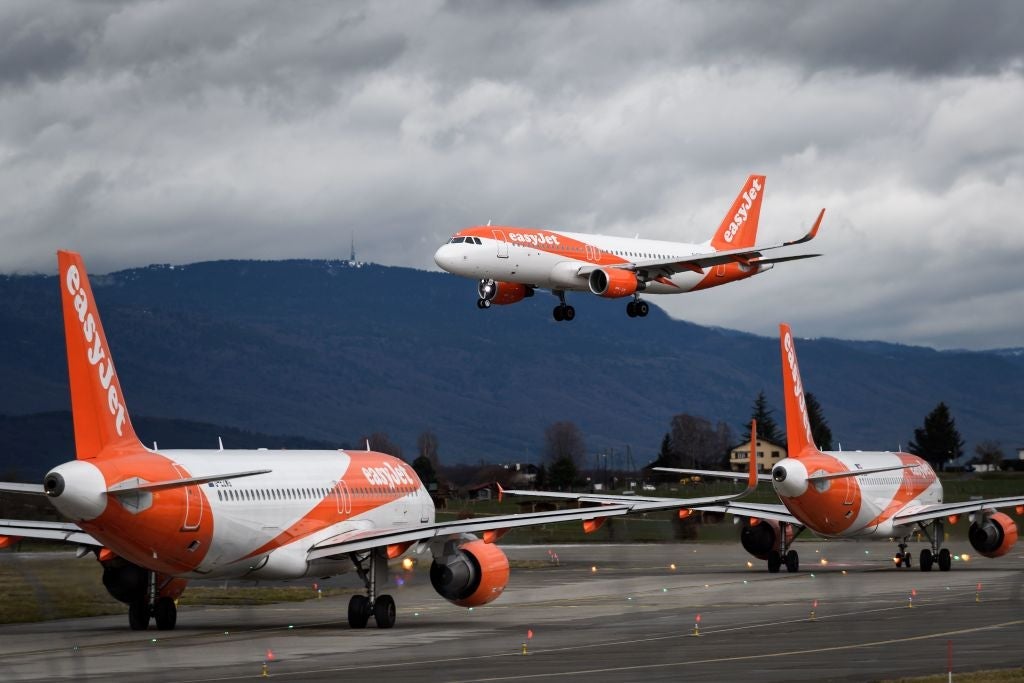EasyJet to offset carbon emissions on all flights
EasyJet's famous for its bright orange and white livery. As of Tuesday, however, the airline's going green in a major way.
The second-biggest low-cost carrier in Europe after Ryanair announced on Tuesday it plans to be the world's first major airline to operate net-zero carbon flights across its network. According to a press release, as of Tuesday, the airline will offset carbon emissions from fuel used for all flights.
EasyJet's carbon offsetting will be vetted according to Gold Standard and VCS, two international standards used to measure carbon offsets. EasyJet CEO Johan Lundgren said that the carbon offset program will cost about £25 million per year, or $32 million, according to Reuters, though he admitted it's not a long-term solution.
"We recognize that offsetting is only an interim measure, but we want to take action on our carbon emissions now," Lundgren said. Since 2000, the airline says it has reduced the carbon emissions for each kilometer flown by a passenger by more than 33%.
In addition to carbon-offsetting its flights, EasyJet said it's also signed a Memorandum of Understanding with Airbus to join a research project on hybrid and electric aircraft, with the goal of introducing sustainable aircraft operations. It's also working with engine makers Rolls-Royce and Safran and with electric-airplane startup Wright Electric to develop new technology to reduce the carbon footprint of flying.
In reality, mass electric flying is likely a long way off. But EasyJet believes by investing in research now, it's setting itself up to be at the forefront of the introduction of electric flying technology, having previously detailed plans to have an electric fleet by 2030.

"EasyJet has a long tradition of efficient flying — the aircraft we fly and the way we fly them means that EasyJet is already more efficient than many airlines," Lundgren said. "However, our priority is to continue to work on reducing our carbon footprint in the short-term, coupled with long-term work to support the development of new technology, including electric planes which aspire to radically reduce the carbon footprint of aviation."
The airline also reported a pretax net profit of £427 million ($552 milion) — in line with guidance, though down 26% from last year largely because of rising fuel prices. However, the carrier said that bookings for first-half 2020 are "reassuring" and slightly ahead of last year.
TPG featured card
at Capital One's secure site
Terms & restrictions apply. See rates & fees.
| 5X miles | Earn 5X miles on hotels, vacation rentals and rental cars booked through Capital One Travel |
| 2X miles | Earn unlimited 2X miles on every purchase, every day |
Pros
- Stellar welcome offer of 75,000 miles after spending $4,000 on purchases in the first three months from account opening. Plus, a $250 Capital One Travel credit to use in your first cardholder year upon account opening.
- You'll earn 2 miles per dollar on every purchase, which means you won't have to worry about memorizing bonus categories
- Rewards are versatile and can be redeemed for a statement credit or transferred to Capital One’s transfer partners
Cons
- Highest bonus-earning categories only on travel booked via Capital One Travel
- LIMITED-TIME OFFER: Enjoy $250 to use on Capital One Travel in your first cardholder year, plus earn 75,000 bonus miles once you spend $4,000 on purchases within the first 3 months from account opening - that’s equal to $1,000 in travel
- Earn unlimited 2X miles on every purchase, every day
- Earn 5X miles on hotels, vacation rentals and rental cars booked through Capital One Travel
- Miles won't expire for the life of the account and there's no limit to how many you can earn
- Receive up to a $120 credit for Global Entry or TSA PreCheck®
- Use your miles to get reimbursed for any travel purchase—or redeem by booking a trip through Capital One Travel
- Enjoy a $50 experience credit and other premium benefits with every hotel and vacation rental booked from the Lifestyle Collection
- Transfer your miles to your choice of 15+ travel loyalty programs
- Top rated mobile app


